A work platform is a powerful tool – but only in the right hands. Operating it safely and efficiently requires more than just technical knowledge: it requires practical experience, an understanding of risks, and recognized qualifications.
This is precisely why BIBERGER offers you a solution that integrates seamlessly into your daily operations: professional operator training directly on your company premises.
Why on-site training is so effective
Many companies have their employees trained externally – in training centers, using third-party equipment, or under laboratory conditions. The problem: The transfer of knowledge to everyday work is lacking. Hazardous areas, space constraints, and typical tasks often differ significantly from the training environment.
Training on your own premises solves exactly this problem:
- Your team practices in their real work environment
- The training will be carried out using your or similar devices
- The learning effect is significantly higher
- Sources of errors are identified where they actually occur
Not only do you save yourself the travel and planning, but you also enable your team to learn directly where they will later assume responsibility – and that makes all the difference.
Contents of the operator training
Our training courses comply with the requirements of DGUV Principles 308-008 / 100-500 as well as the specifications of the professional associations. You will receive a complete, recognized qualification – including an operator ID card ( SYSTEM-CARD ) and documentation for your records.
Theoretical part
- Legal basis and operator obligations
- Structure and function of work platforms
- Stability, stability and permissible loads
- Personal protective equipment (PPE) and rope protection
- Hazard sources (electrical, mechanical, environmental influences
- Accident prevention regulations (UVV) and safe working practices
Practical part
- Equipment check and daily visual inspection
- Operating the stage under real conditions
- Access to narrow areas, height access in confined spaces
- Behavior in the event of emergencies and disruptions
- Secure positioning and support
- Instruction in PPE use (if necessary)
At the end of the course, there will be a practical and written exam. Upon successful completion, your employees will receive the SYSTEM-CARD operator ID card , which is valid nationwide.
Who is the training intended for?
Our training courses are aimed at:
- First-time operators who do not yet have qualifications
- Experienced operators who need a refresher or new training
- Project teams that are about to undertake a specific task (e.g. hall construction, maintenance, logistics)
- Security managers who want to build up know-how internally
Whether in industry, trade, local authorities or event technology – we adapt the content to your individual requirements.
Your benefits at a glance
Why you should choose on-site training with BIBERGER:
- Practical relevance : You train where the work will later take place – it couldn't be more realistic.
- Time savings : No travel, no logistics costs, no downtime.
- Legal compliance : All training courses comply with BG requirements, including documentation.
- Flexibility : You determine the date, location and, if necessary, the type of device.
- Increased safety : On-site risks are identified and integrated directly into the training.
- Cost control : Clear flat rates, no hidden additional costs.
Practical example
The picture shows a typical training situation: Directly on a customer's premises, we prepare employees for the safe use of an articulated boom lift . The lift is used exactly where the work will later take place – between storage areas, building facades, and ongoing operations.
Participants practice under realistic conditions: narrow routes, limited visibility, and changing terrain. These are precisely the factors that can't be simulated in a traditional training center. Here, the team recognizes typical hazards early on – and learns how to safely avoid them.
The result: A mobile elevating work platform training course that not only imparts knowledge but also creates genuine safety awareness. With direct practical relevance, tested equipment, and maximum learning impact.
Conclusion: Training where safety counts – on-site
Working with aerial work platforms requires not only technical expertise, but also a keen sense of the environment. We train you in exactly that – right on-site. Whether it's an industrial hall, construction site, or warehouse: our certified trainers bring the knowledge to where it's needed.
Get your team up to speed with practical SYSTEM-CARD training on your premises.


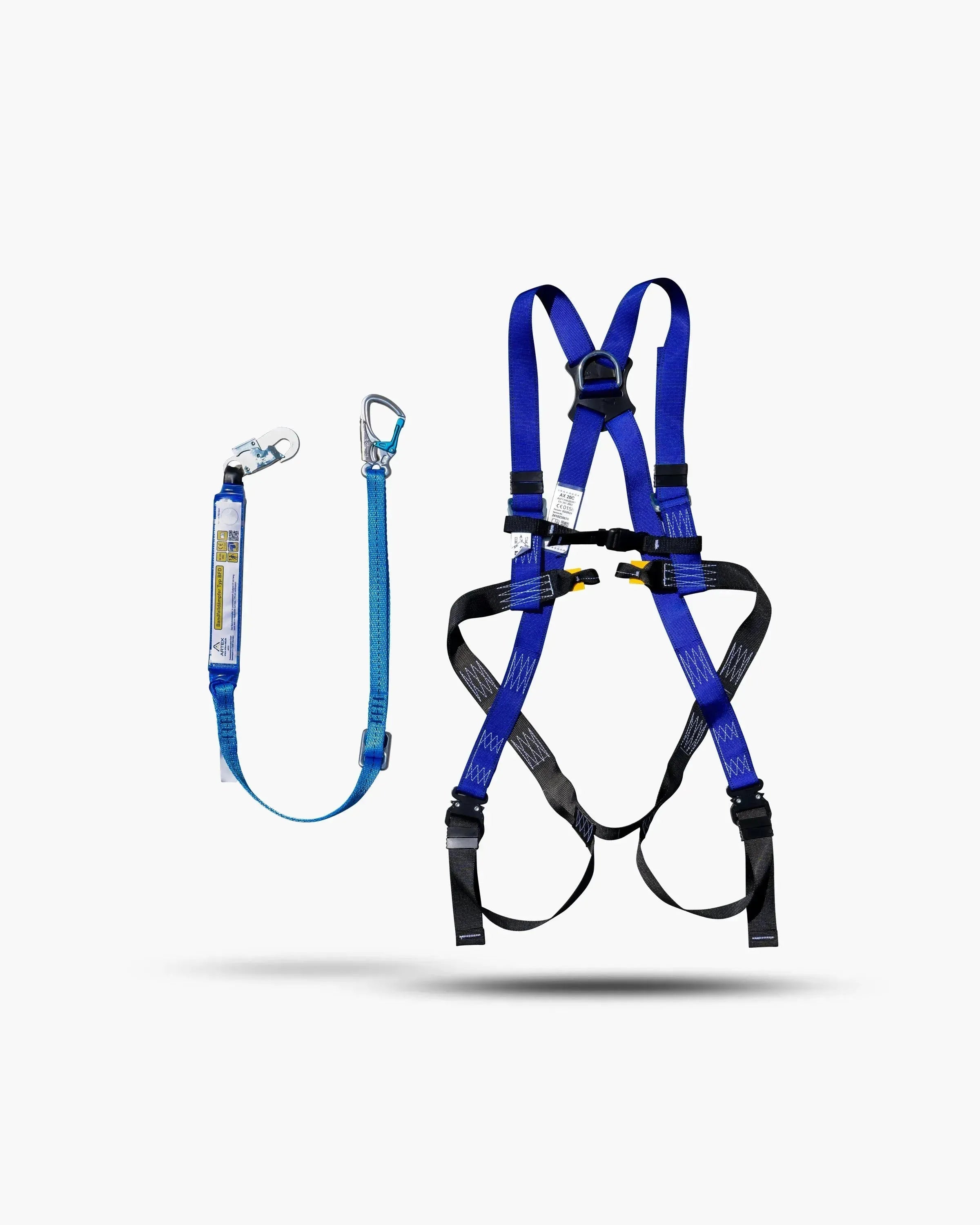




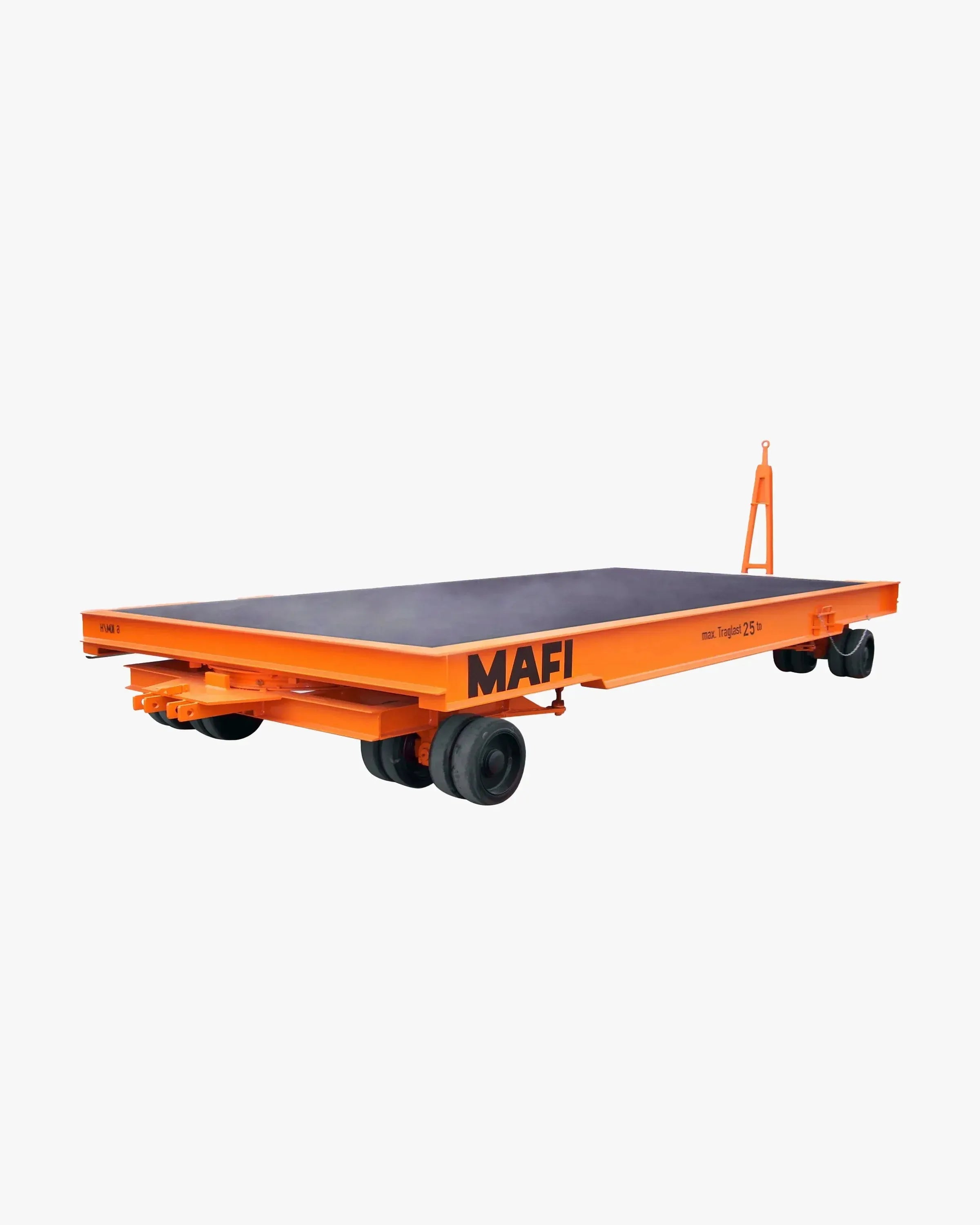
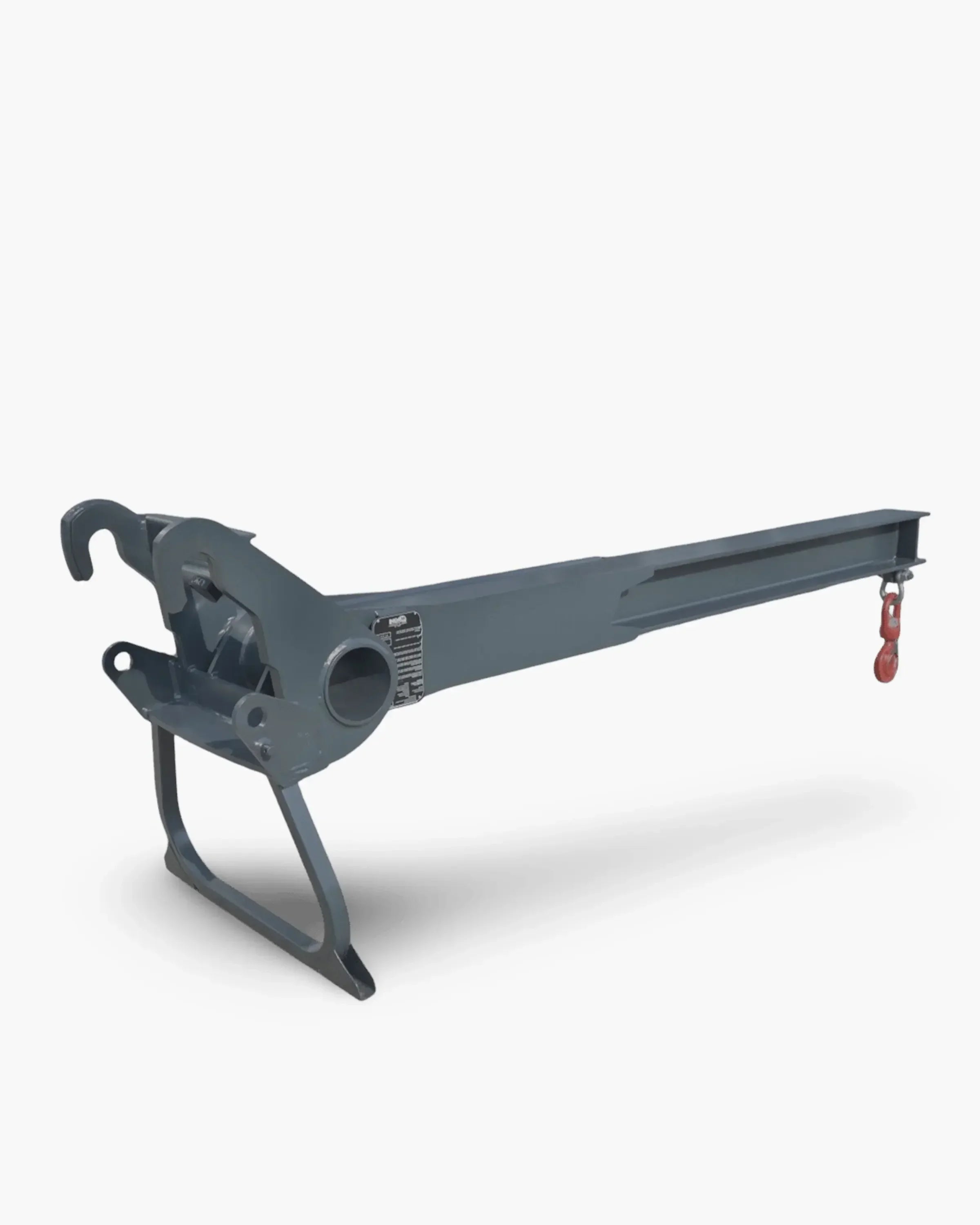
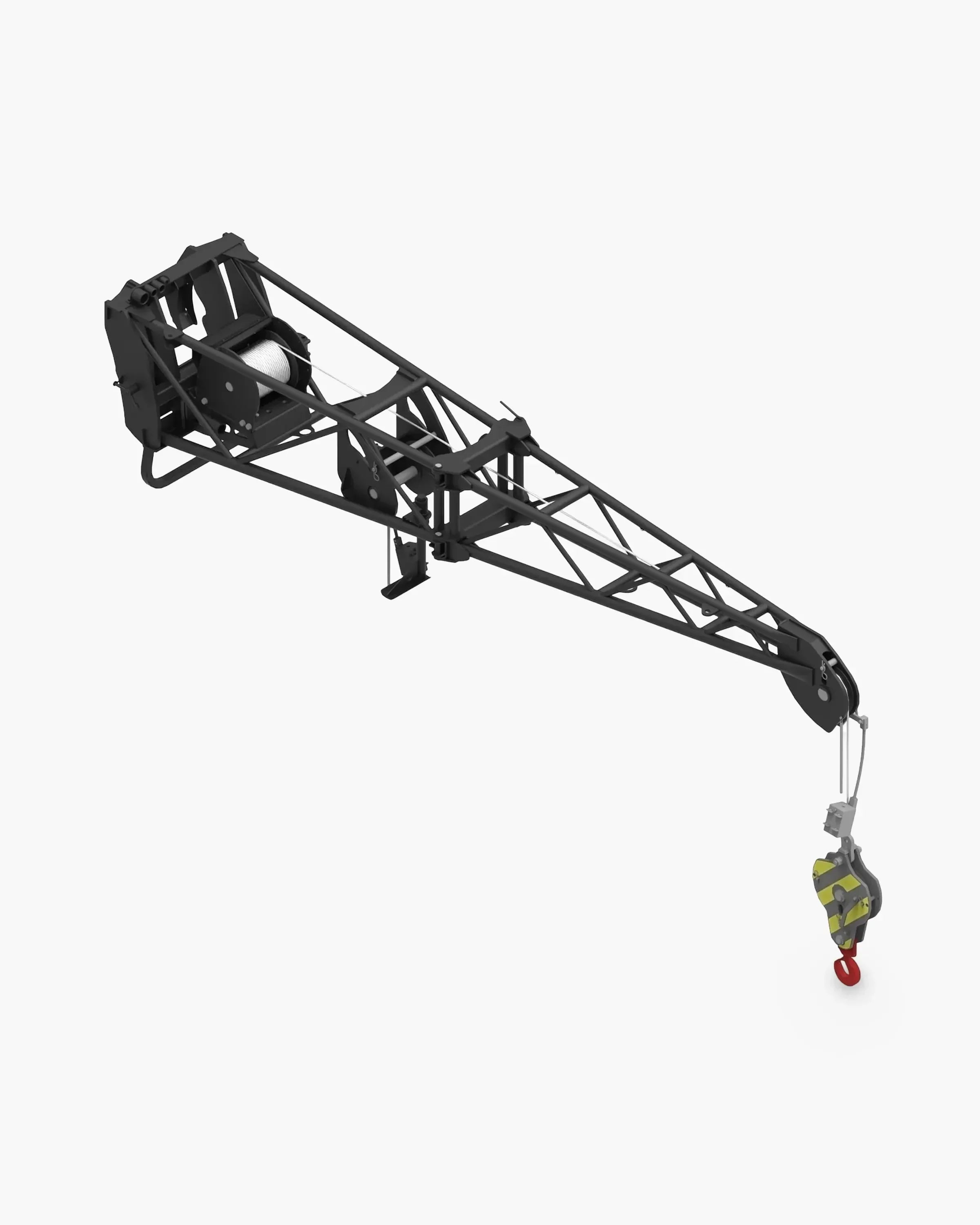
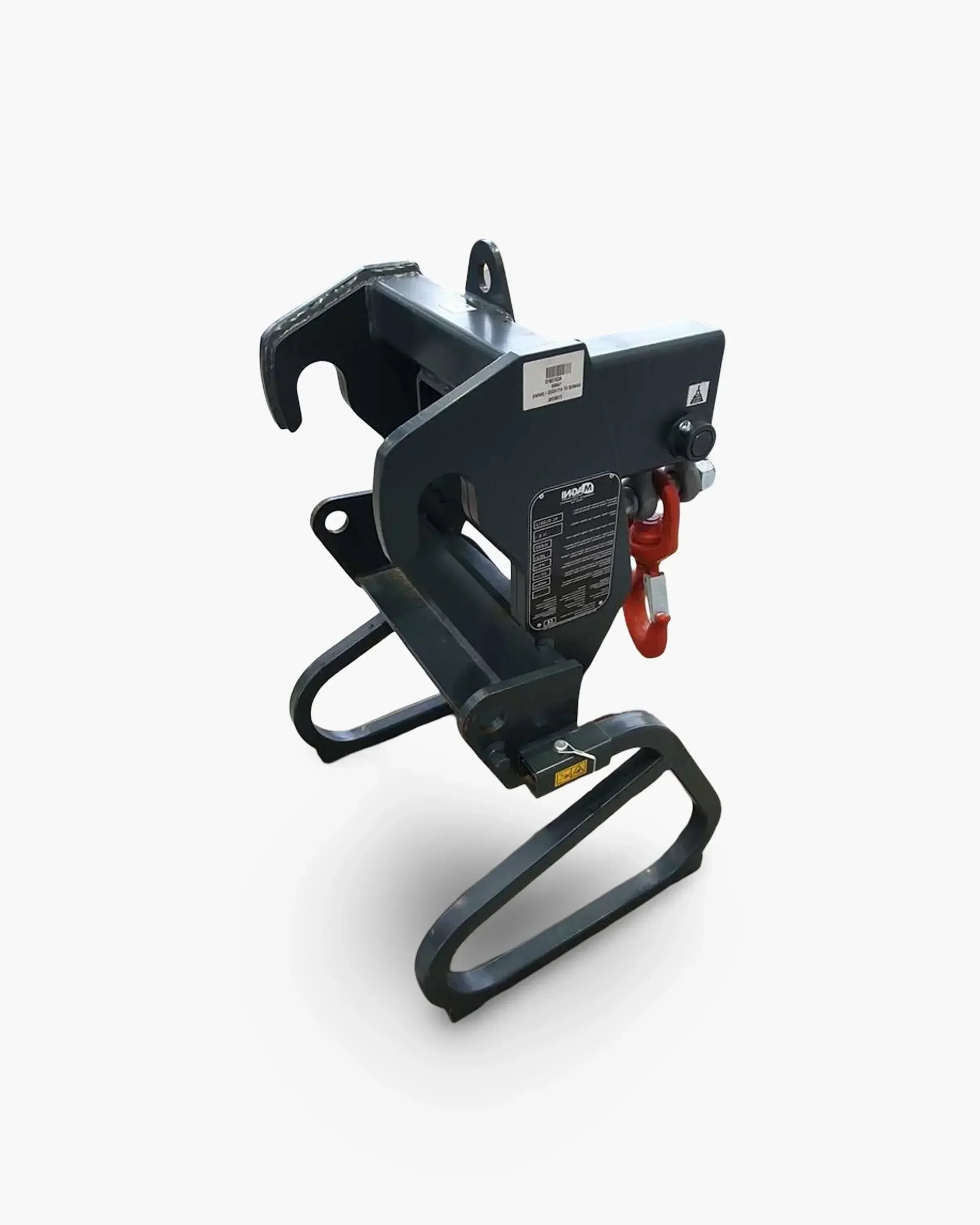

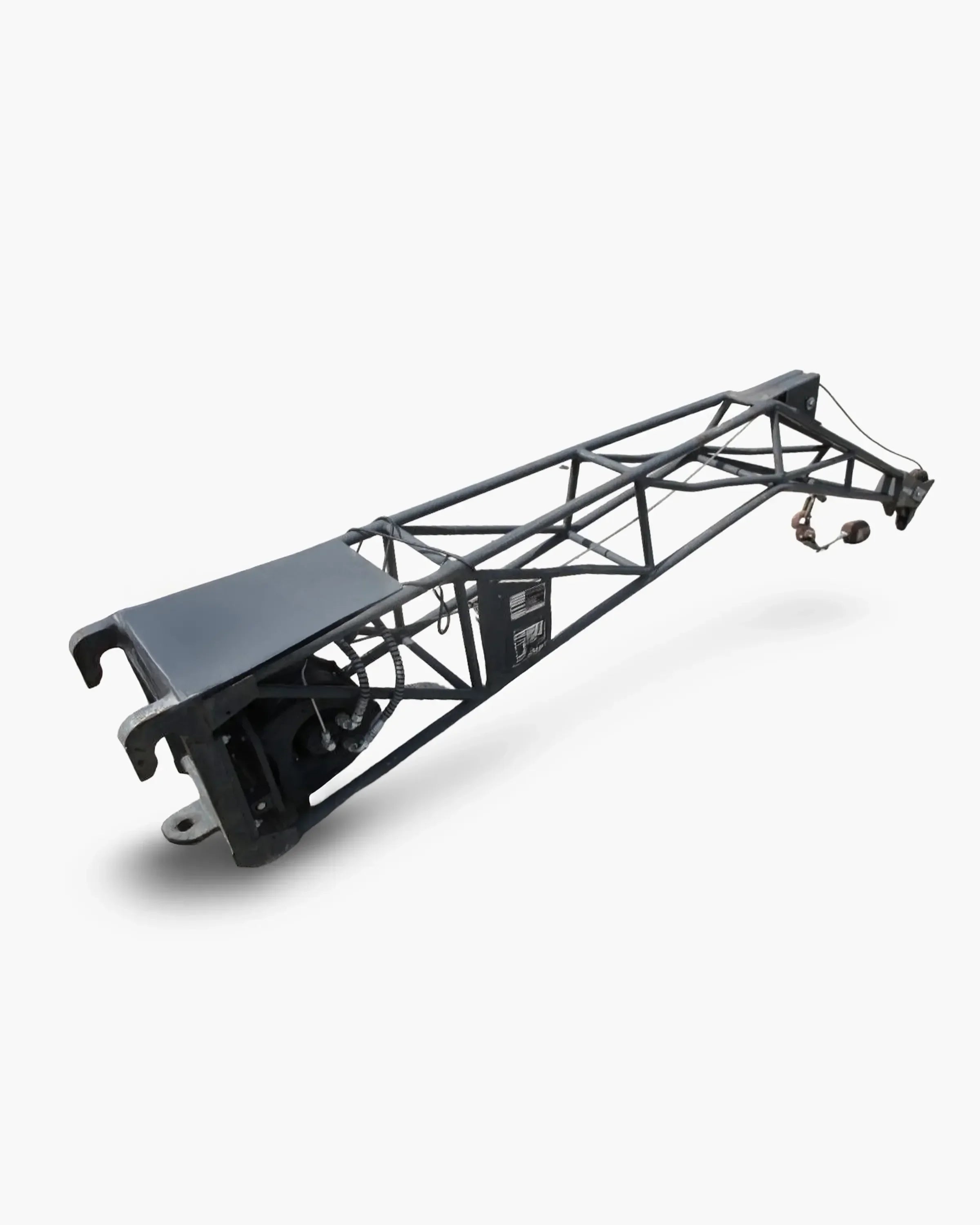
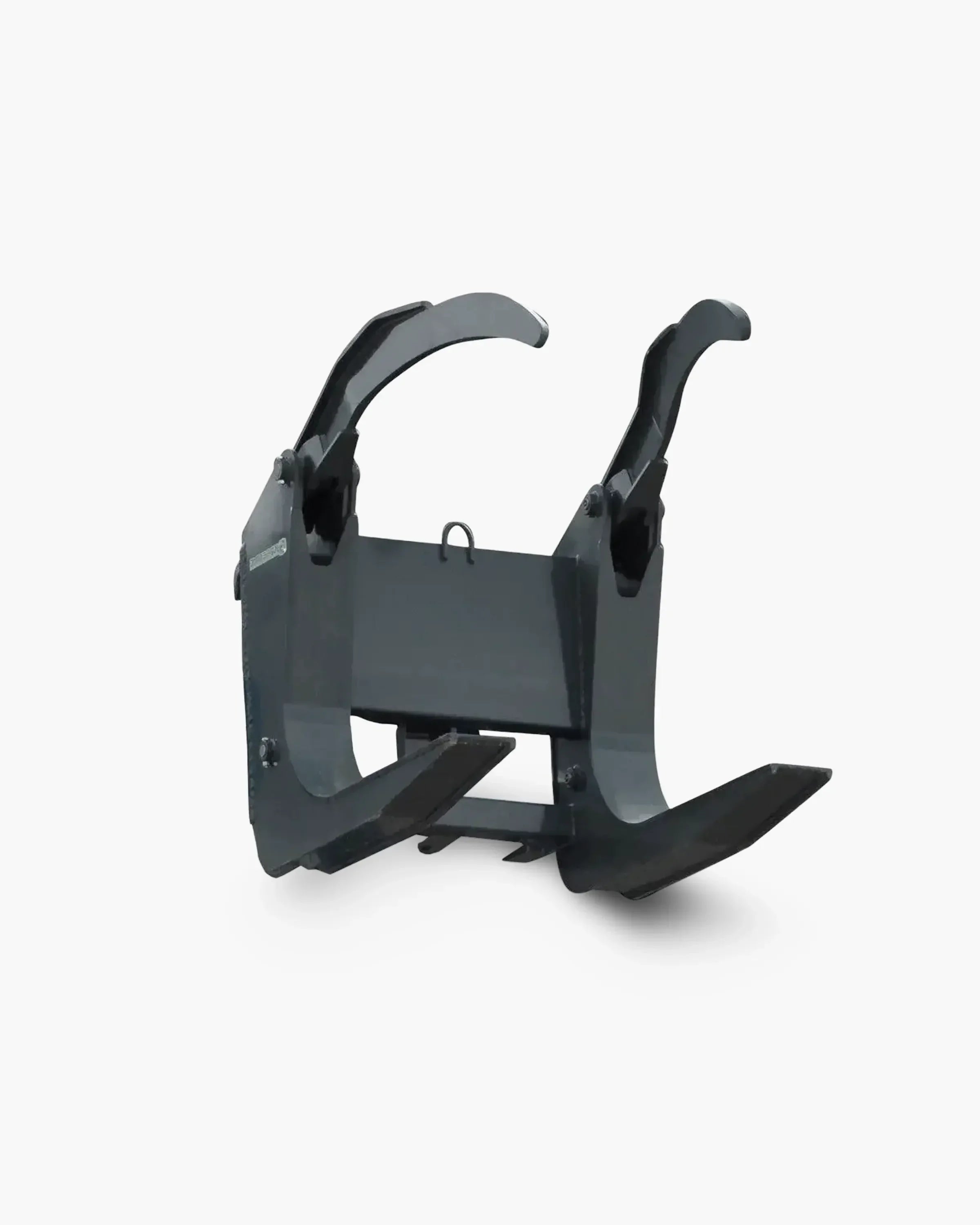
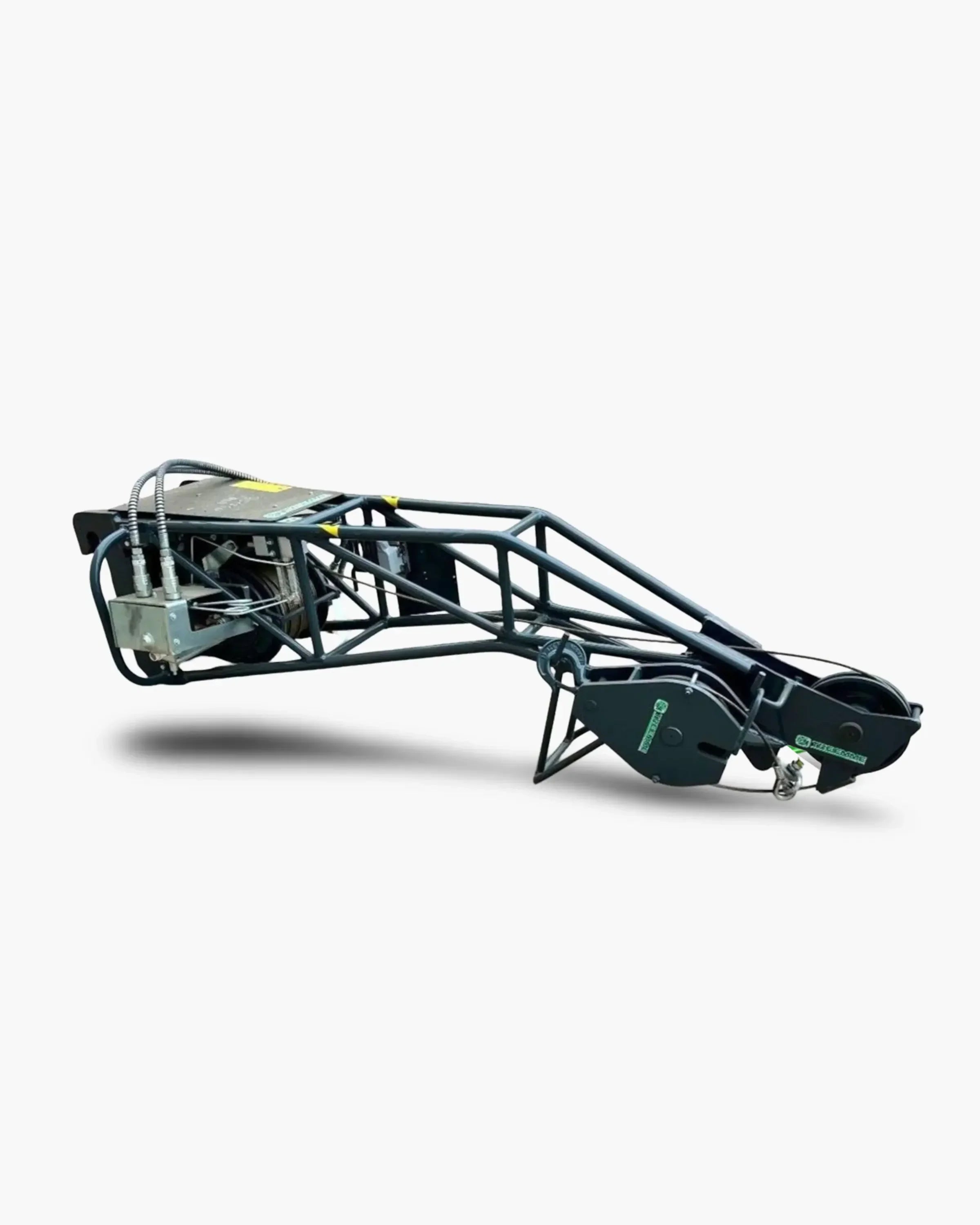

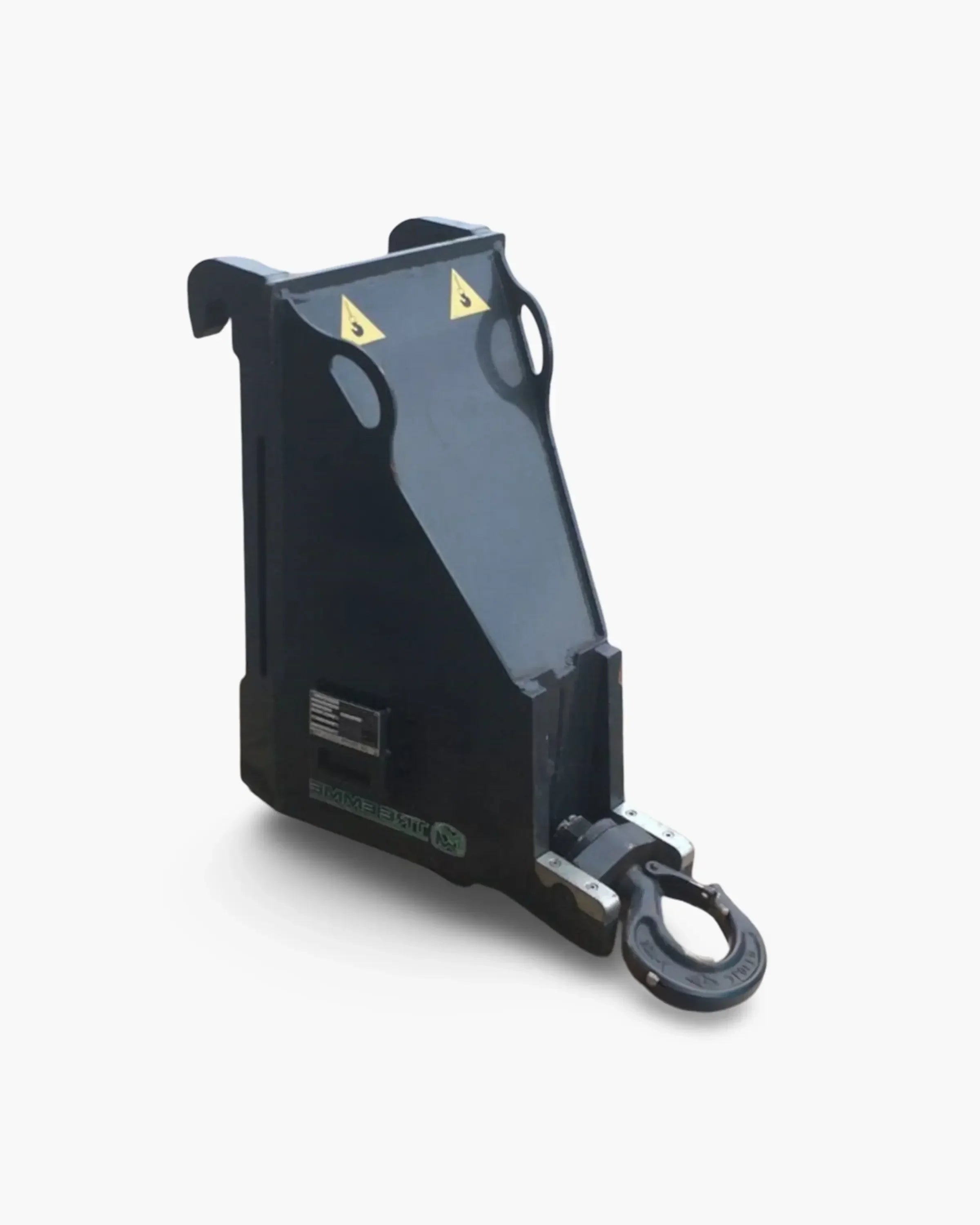
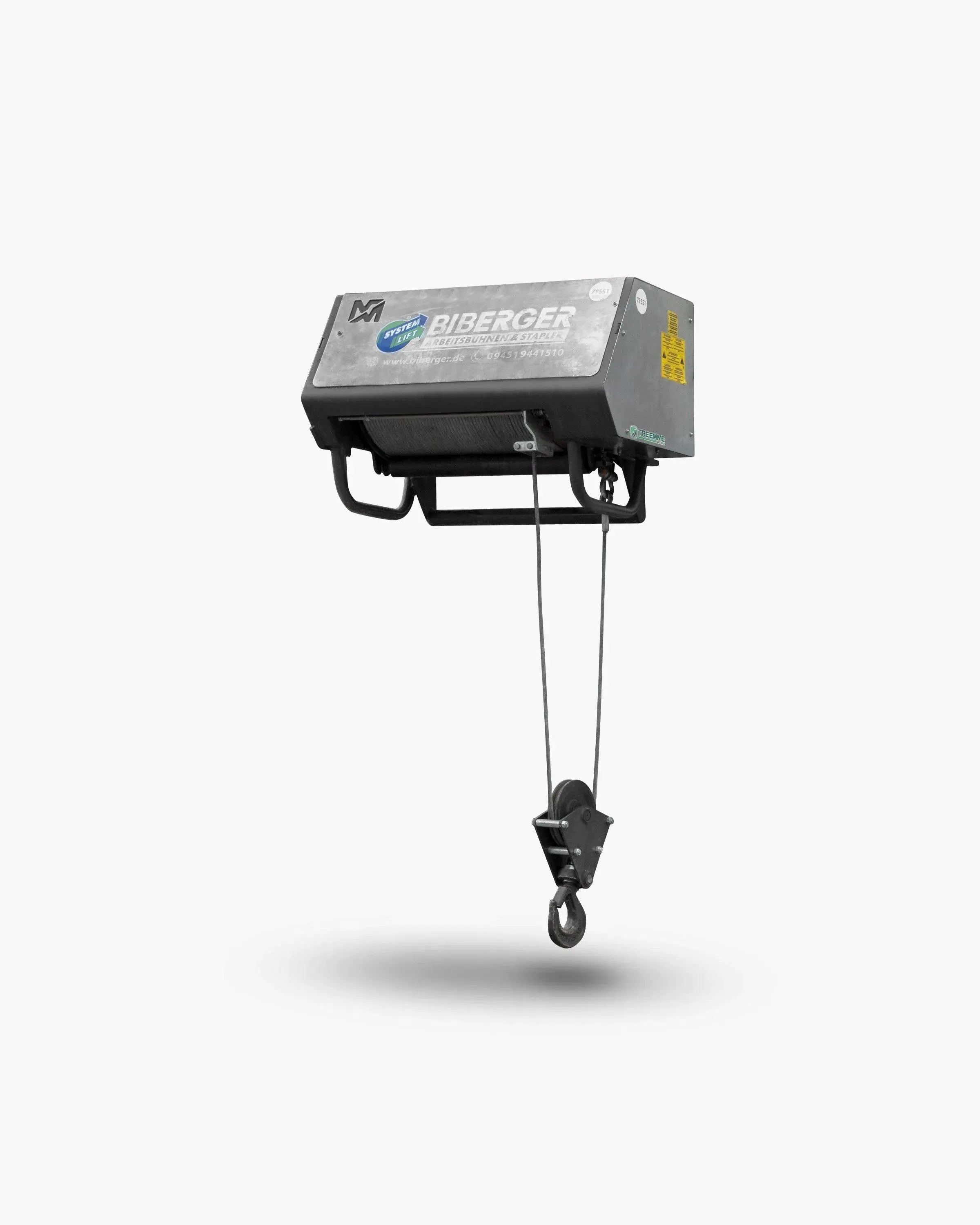
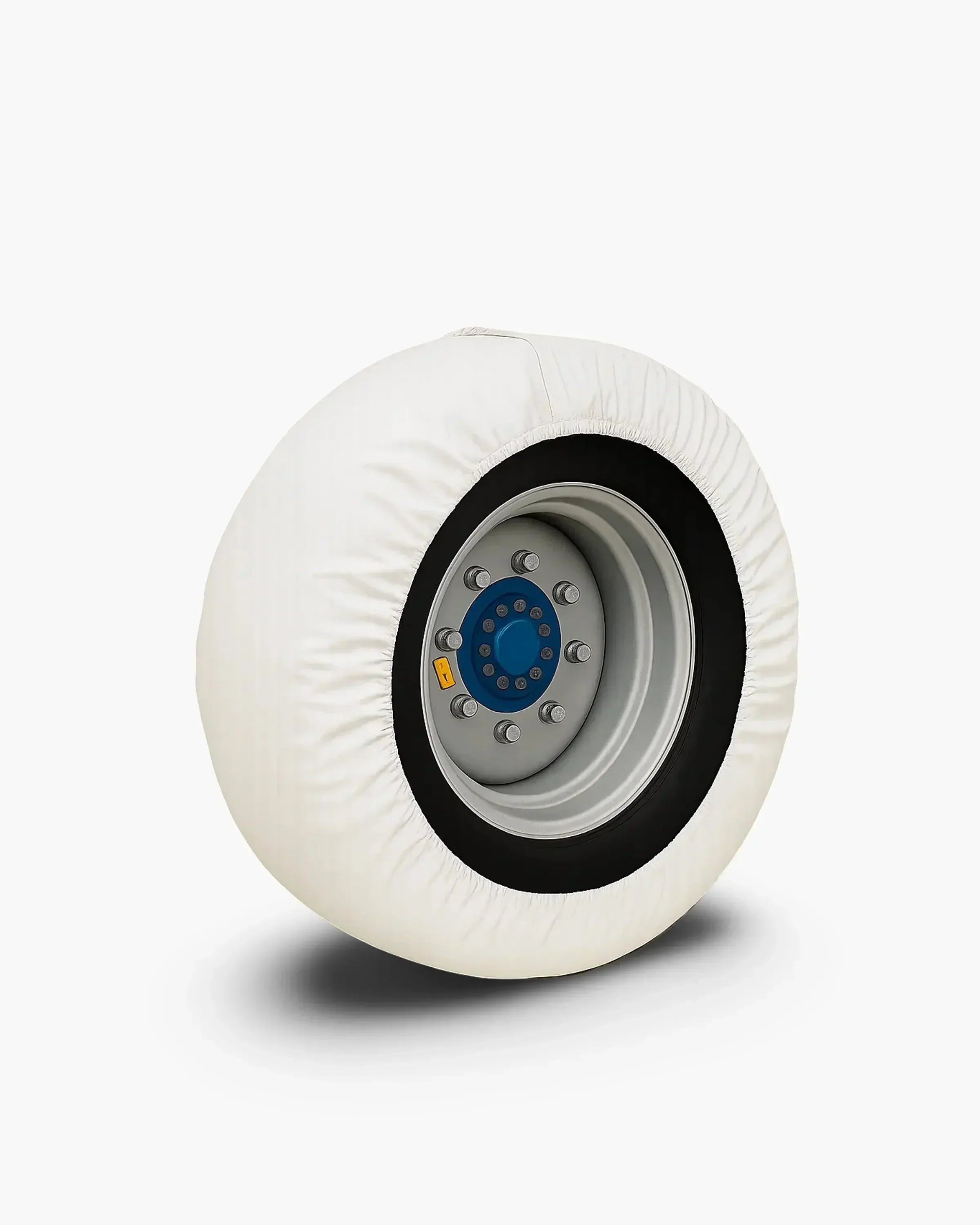


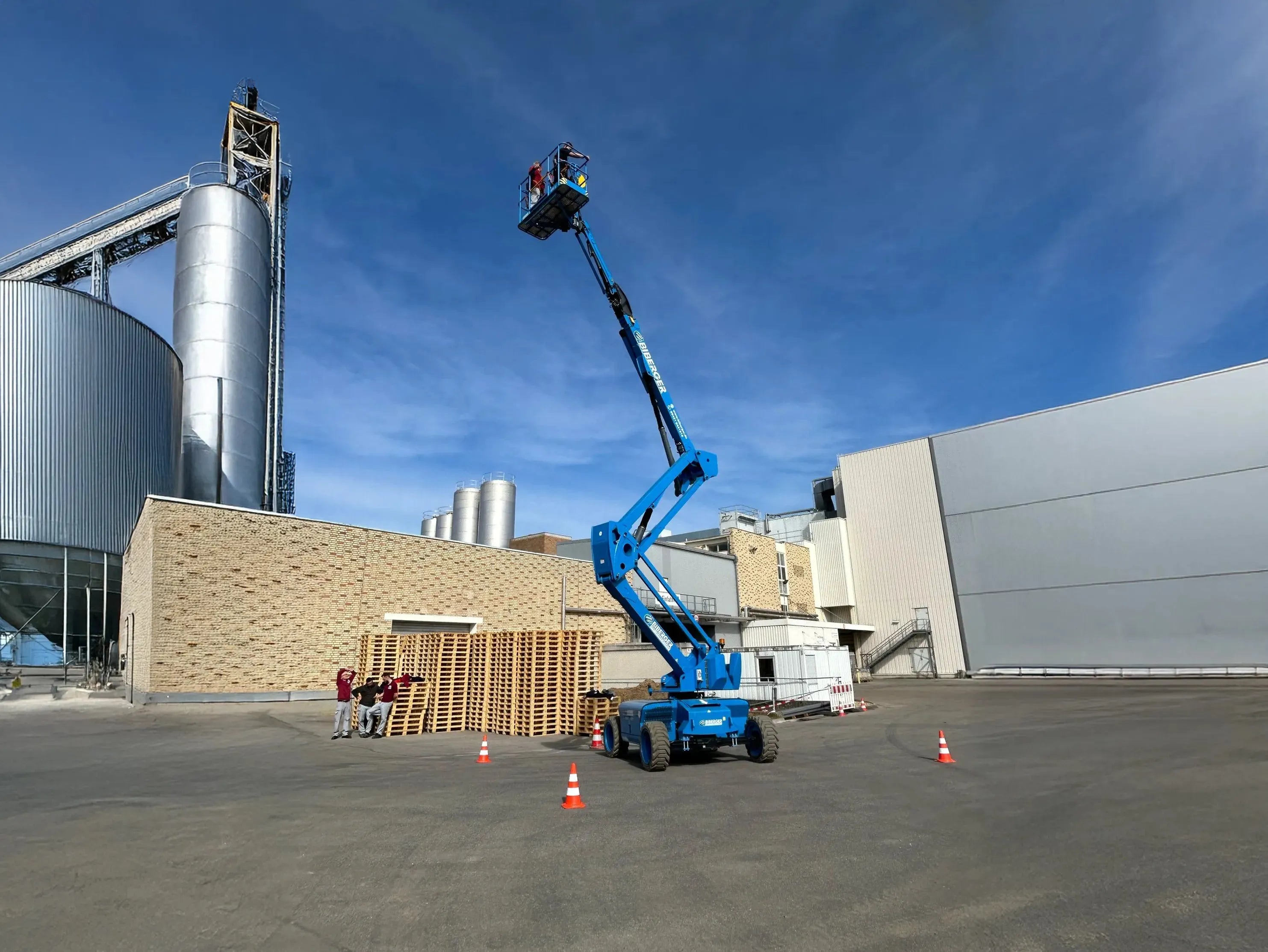

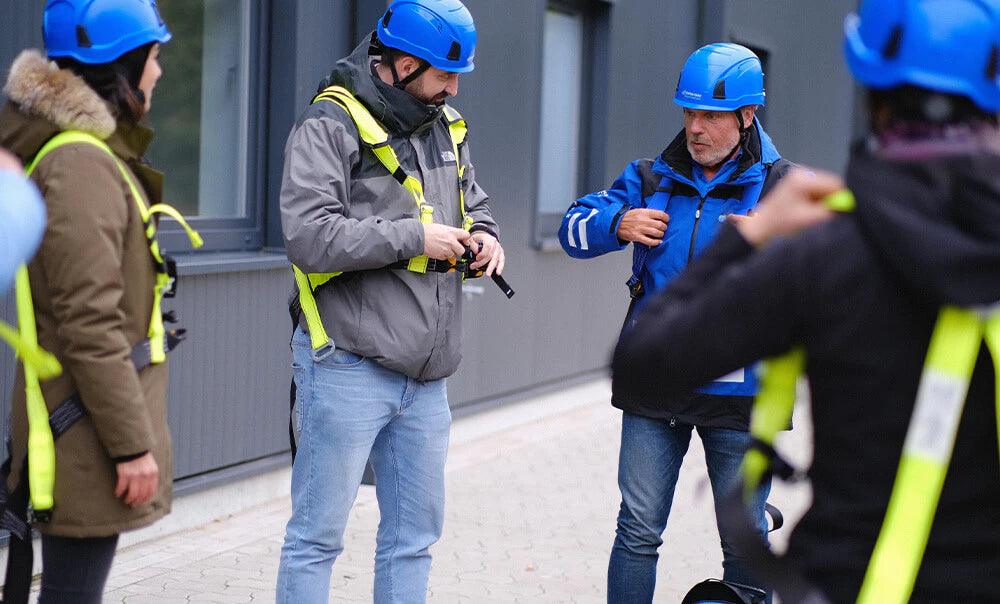

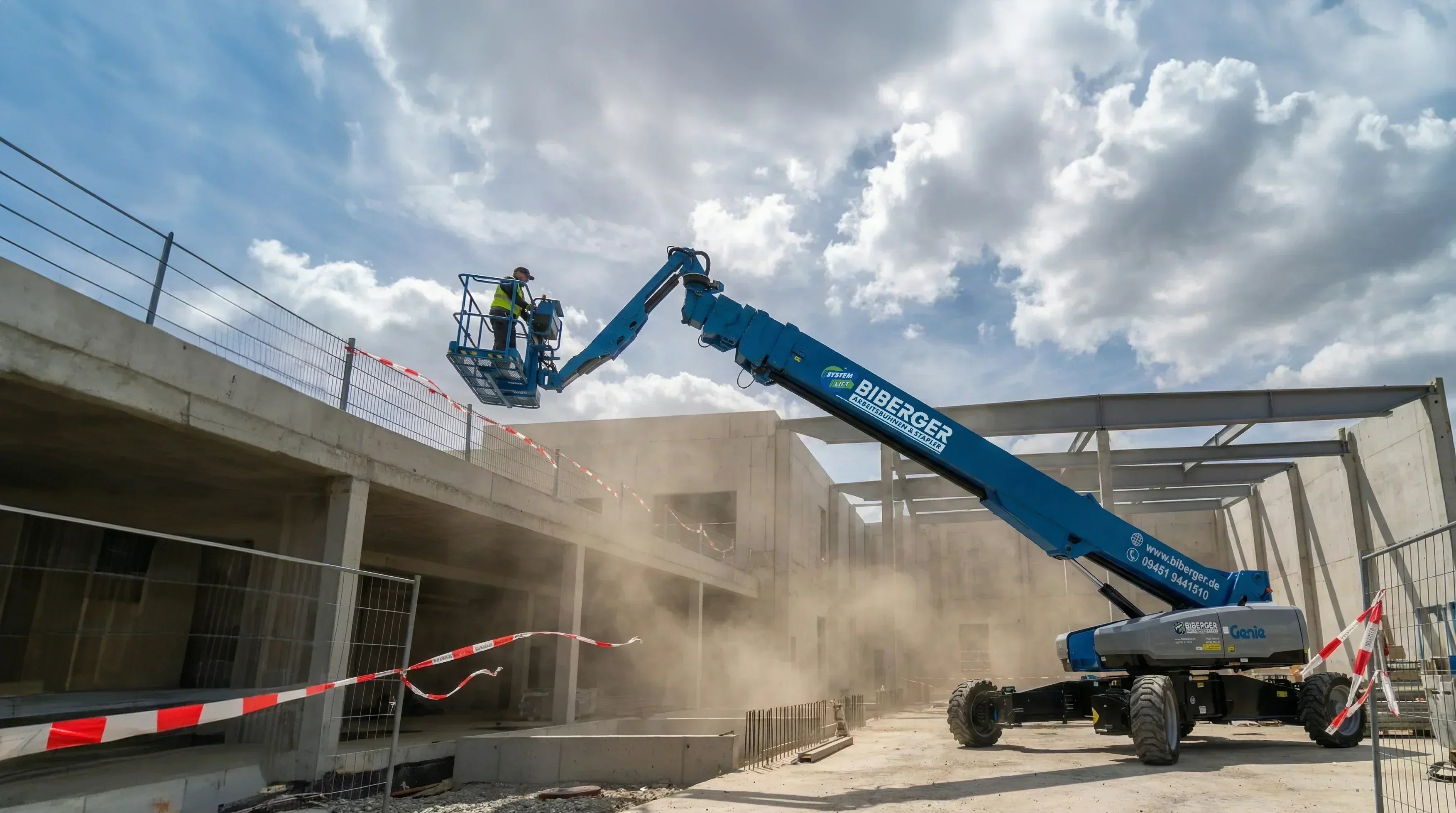

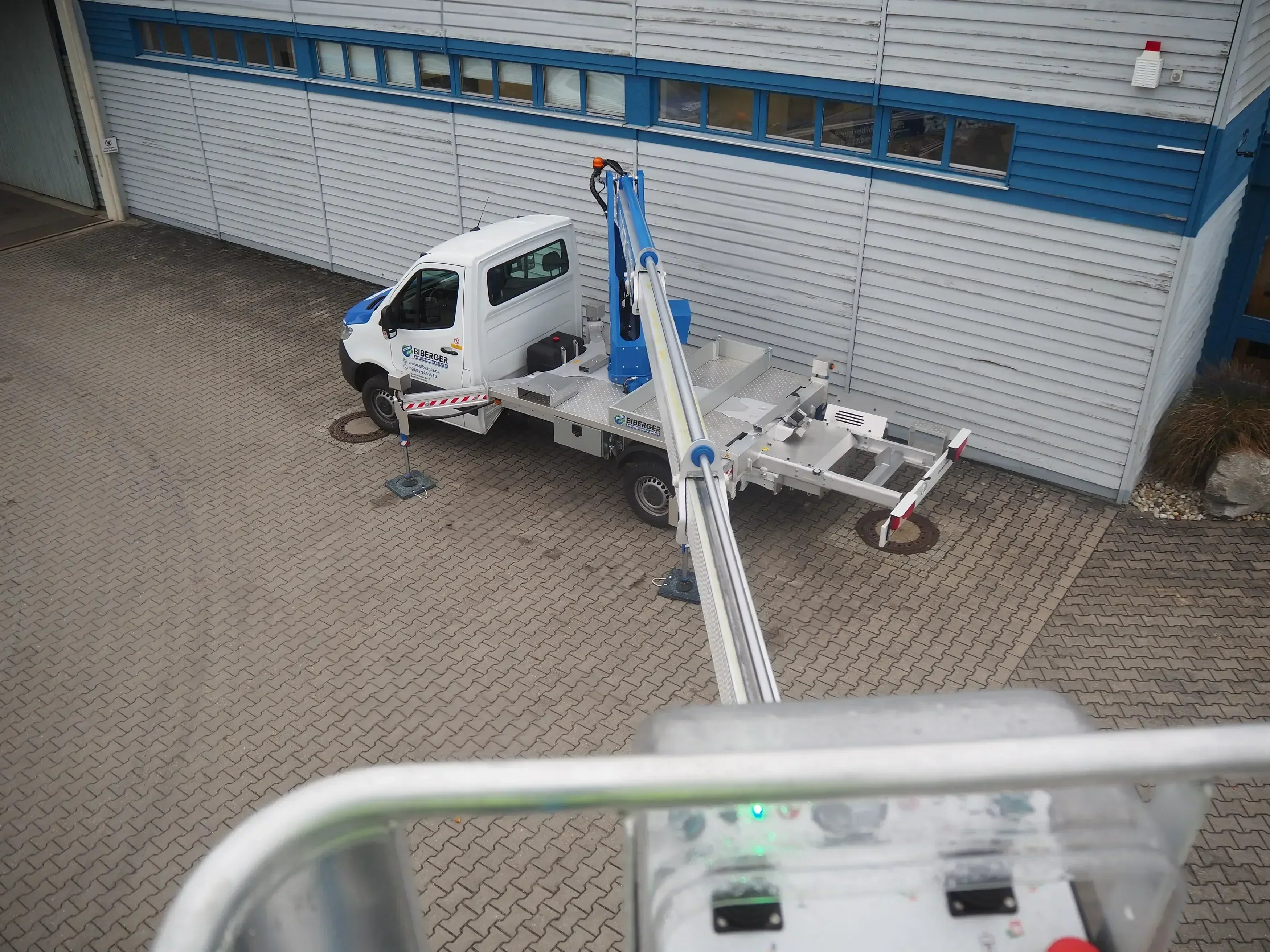
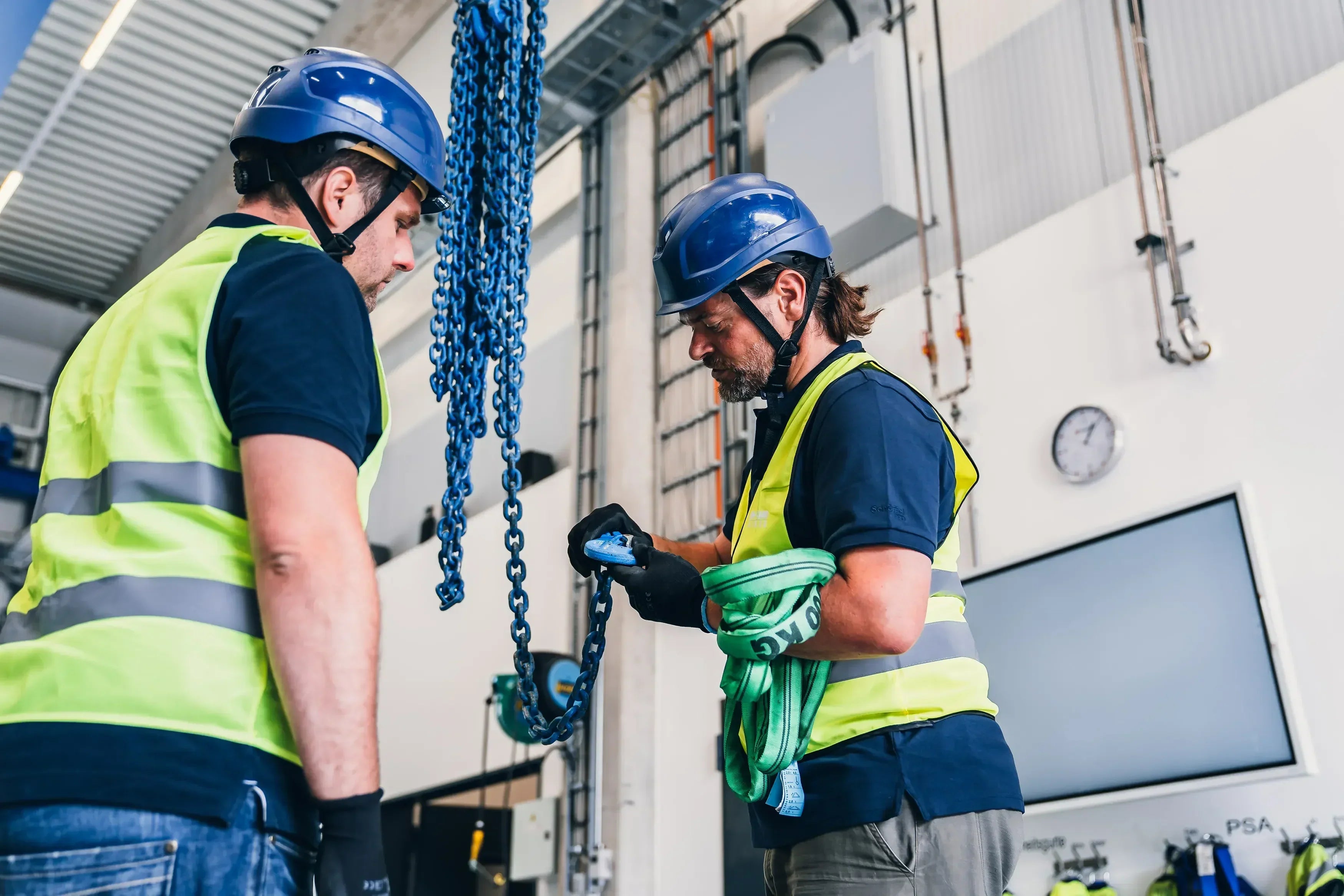
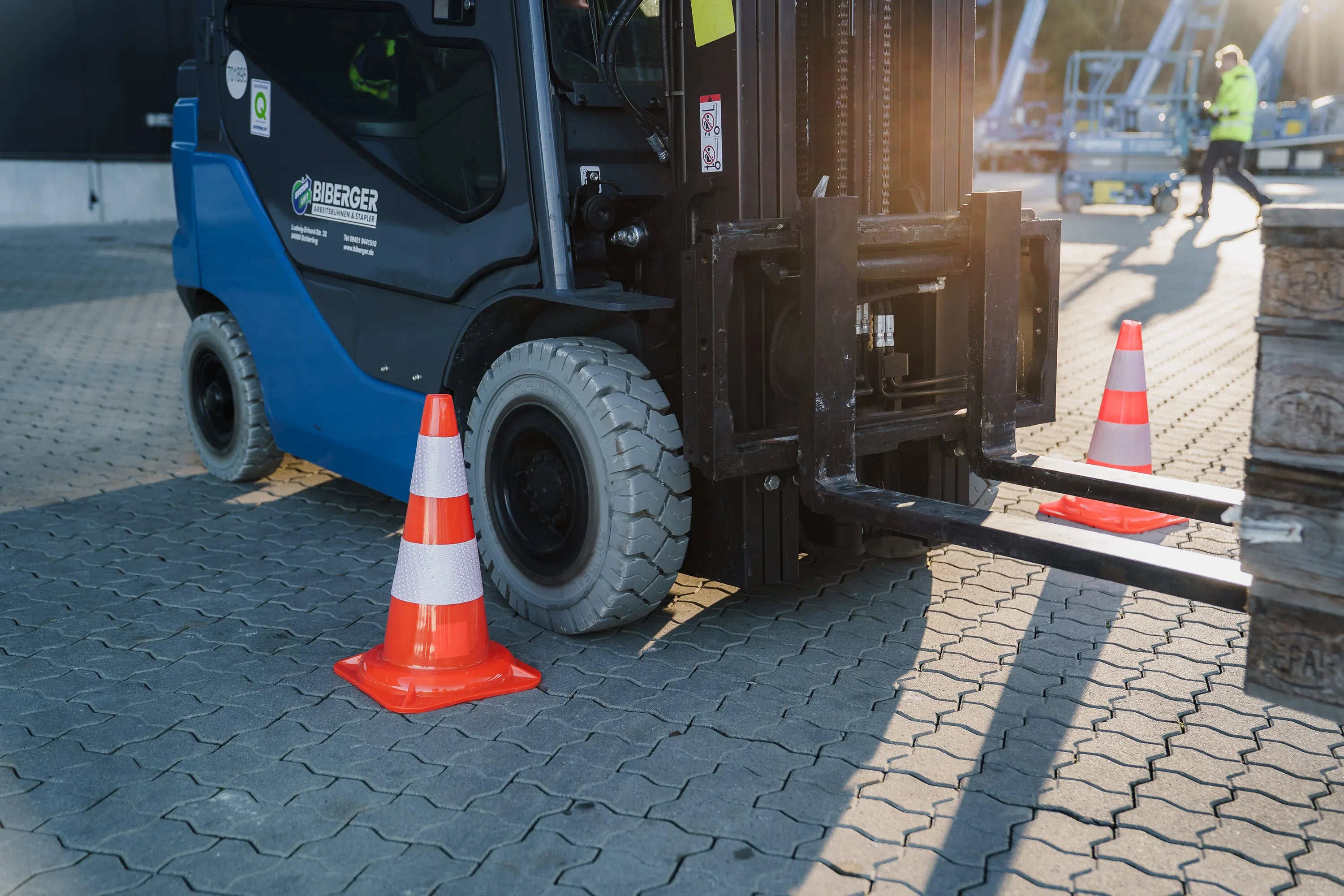
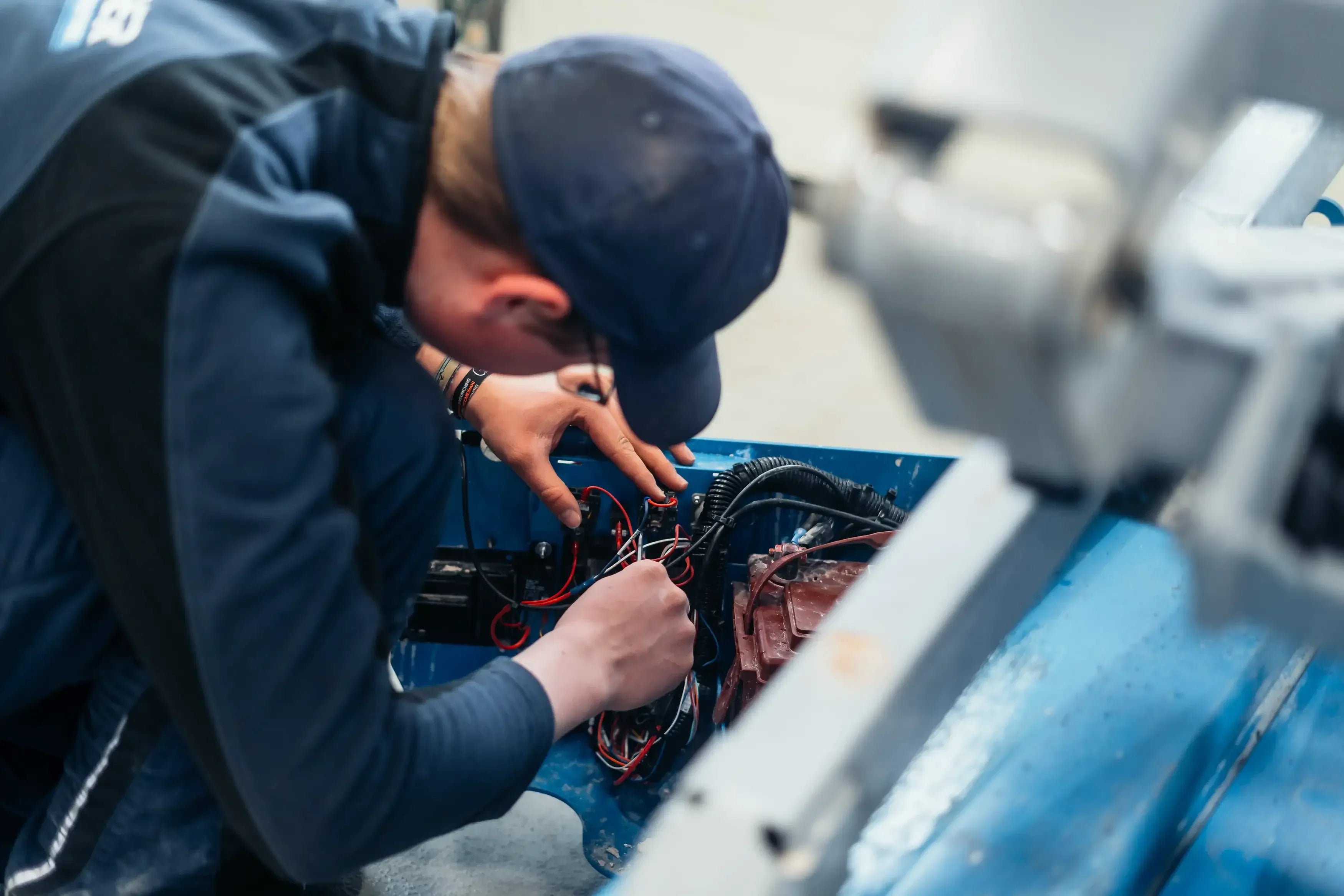






Share:
Use of work platforms in forestry and off-road
Working close to traffic? How to use work platforms safely
Our editorial quality standards
The subject content on biberger.de are editorially created, reviewed, and continuously updated. The basis is our daily work with aerial platforms, telehandlers, and industrial trucks – in rental, sales, operational planning, and technical support.
Each article draws on real-world experience and is editorially reviewed for clarity, accuracy, and practical relevance according to expert criteria. Technical statements are regularly compared against current industry standards and best practices.
The aim of our publications is to make reliable specialist knowledge accessible and to offer guidance to users, decision-makers and industry partners. BIBERGER sees itself as an independent information platform for safe, economical and modern height access technology – well-founded, comprehensible and free from advertising influence.